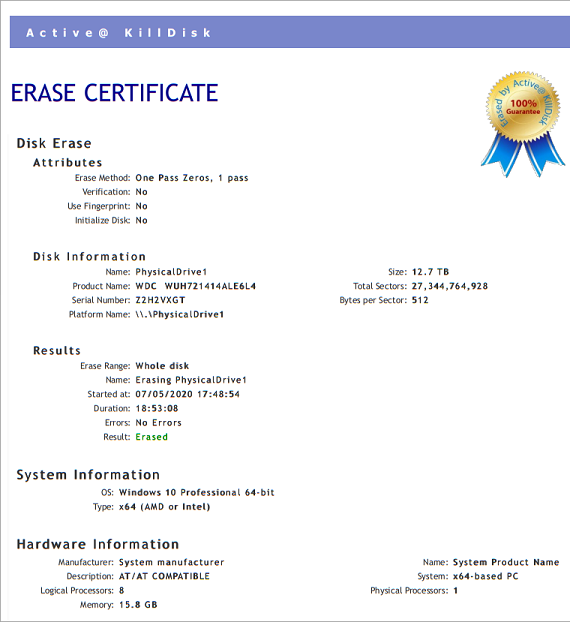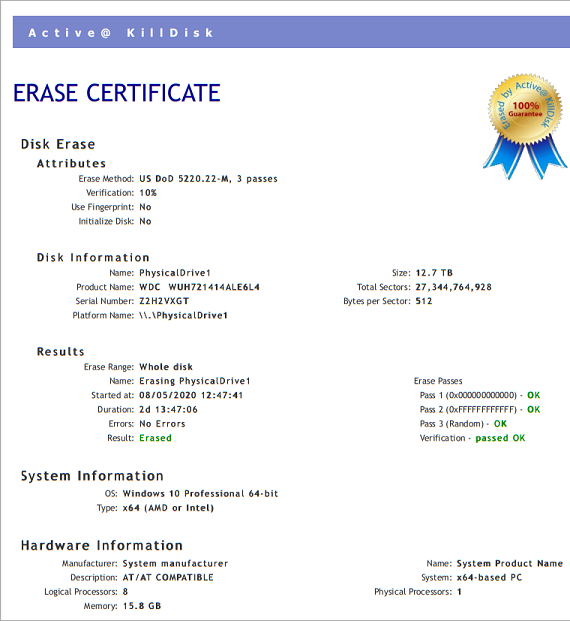How Fast Erasing Occurs?
An actual erase speed depends on many factors:
- Drive Speed: RPM and/or controller sequential write speeds - the most important factor
- Drive Interface: PCI-E IV (2GB/s), SAS (6/12GB/s), SATA III (6GB/s), SATA II (3GB/s), SATA I (1.5GB/s)
- Interface Controller: Motherboard controller interface and/or HBA/RAID card
- Computer overall performance (CPU+RAM) and workload (how many parallel erases occur)
For most modern computers and disks (manufactured within last 5-7 years) SATA III standard is supported, so erase speed is limited by HDD throughput (disk write speed) only.
Our tests give the results: 10 GB per minute (in average) per pass with decent computer configuration and disks with age of up to 5 years old.
For example, 2 TB Toshiba disk has been erased on Windows platform with one pass within 3 hours and 32 minutes, 14 TB Western Digital disk - within 18 hours 53 minutes.
The following snapshots are real-test results for erasing of:
1) 600 GB HP SAS 15000rpm disk with [One Pass Zeros] and [US DoD 5220.22-M, 3 passes + verification] showing the average speed of 10 GB/min per pass
2) 120 GB SSD Kingston SATA III SSD with [One Pass Zeros] and [US DoD 5220.22-M, 3 passes + verification] showing the average speed of 17 GB/min per pass
3) 256 GB Samsung EVO 970 NVME SSD with [One Pass Zeros] and [US DoD 5220.22-M, 3 passes + verification] showing the average speed of 23 GB/min per pass
4) 1 TB Kingston U.2 NVME SSD with [One Pass Zeros] and [US DoD 5220.22-M, 3 passes + verification] showing the average speed of 90 GB/min per pass
5) 2 TB Toshiba (manufactured in 2015) SATA III (6 GBps) 7200 rpm disk with One Pass Zeros and US DoD 5220.22-M (3 passes + verification) showing the average speed of 9 GB/min per pass

